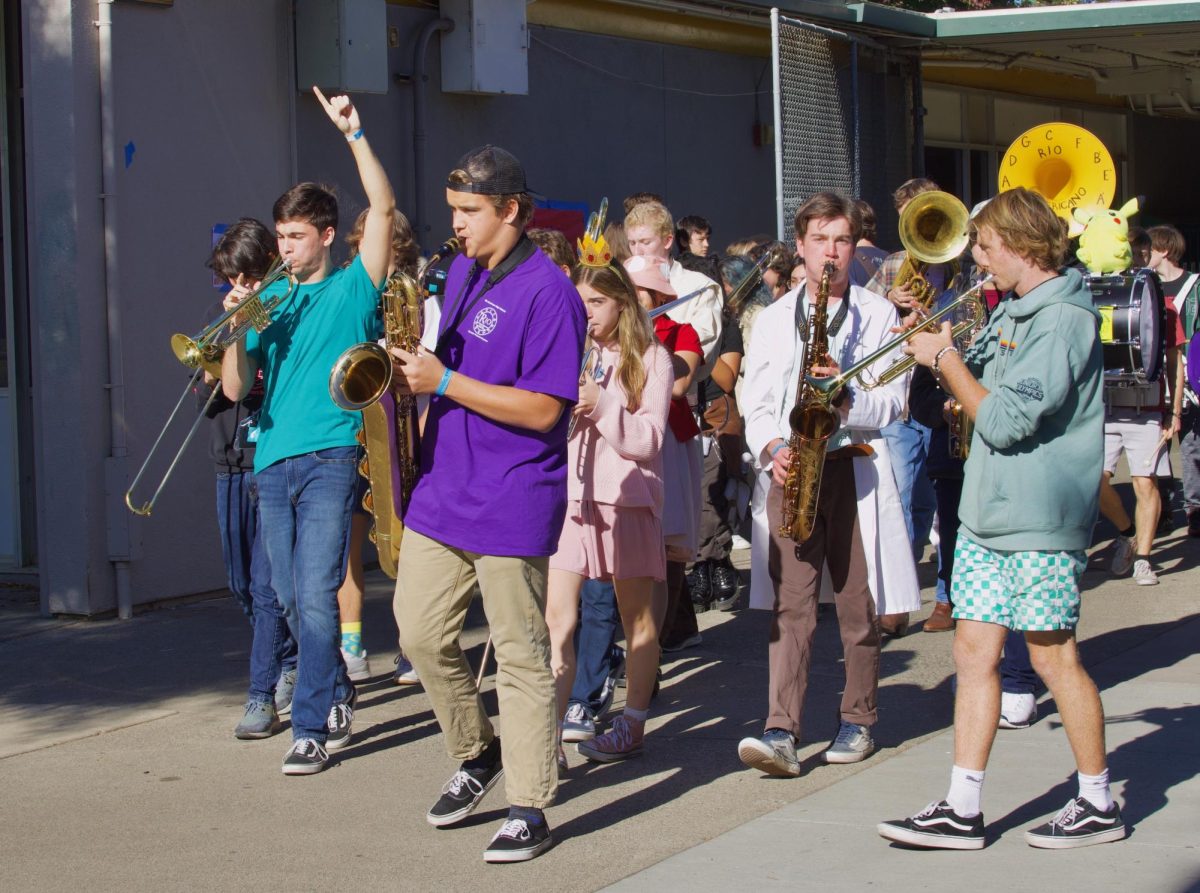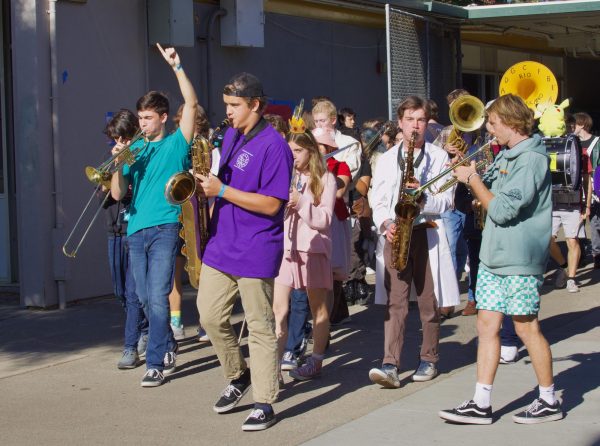4×4 Block Schedule
Schedule might change due to new graduation requirements
Photo By Nicolas Gorman
A change in the graduation requirements starting with the class of 2023 will require students to take more core classes, and that means less room for electives.
As a solution, Principal Brian Ginter has suggested that the school adopt a four by four block schedule, which would allow students to take eight classes a year instead of six.
In a block schedule, students take four 90 minutes each semester instead of six approximately one-hour classes. Year-long courses, such as math, science, and English, would be completed in a semester.
While Ginter, who worked at a block schedule school in Pennsylvania, has only floated the idea with the school leadership team, he said he would favor the change.
“We didn’t have any problems,” said Ginter. “I worked at schools who had both four by four block schedule and a regular block schedule and they both worked really well, it just depends on how you looked at it. I personally didn’t have a problem with it.”
The idea for switching to block grew out problems that might be caused the graduation requirements that go into effect for freshman starting in 2019. Students will have to complete the A-G requirements, very similar to those required for admission to University of California and California State University. That means, in part, more language and math classes, and less room for electives.
“The reason why the school district is talking about changing the graduation requirements because the San Juan schools have pretty low graduation needs compared to the other schools,” said Ginter.
Block scheduling allows students to take more classes. Supporters say that it also allows students to focus more because they have fewer classes each semester. But the schedule is not without critics.
Many teachers are concerned that students lose a significant amount of instruction time in core courses by taking a semester-long 90-minute class instead of a yearlong one-hour class. Absences mean students miss more class time, and some students may find it hard to focus for the longer period.
But the biggest concern for many teachers interviewed by the Mirada is the potential break in continuity of studies. Students might take a class first semester one year and not take the next level until the second semester of the following school year.
Math teacher, John Baker opposes the four by four block because it conflicts with his teaching.
“I hate it,” said Baker. “I recognize the benefits to this new block schedule, but for math, it slows down the learning process by 3/4 because students would take a class one semester and take that class the next year in the second semester.”
Other teachers liked it but thought it was a better fit for the teachers. David White, an English teacher who used to work at Del Campo said,“I thought it helped teachers by giving them more time to work but it didn’t really benefit the students very much.”
An important aspect of this possible transition is just exactly how will this directly affect the students. Some students from the four by four block schools have seen it as an easier system to get adjusted to than most people would expect.
Maddie Sutter, a junior at Del Campo, said “The schedule isn’t that bad. The periods might be longer, but it starts to feel pretty normal once you get use to it.”
Students have fewer tests, quizzes, and homework assignments since their study load has dropped from six to four classes daily. There is also a better chance for teachers to connect with their students because they would have less students throughout the day than compared to a six period schedule.
Many of the students at other schools with this schedule have seen some benefits to it, others still see it as a system that crams classes and leaves little room for personal electives that a student may look to pursue throughout their high school years.
“It seems really unnecessary to have longer class times, but less classes to take. It benefits our A-G requirements, but it makes it difficult to take the electives that focus on what I want to do after high school,” said senior William Trent.
But not all students in block schools love the schedule. Some students have a more difficult time keeping up with the faster pace that is inherent to block scheduling and they may become bored easily if the teaching methods are too teacher oriented.
Del Campo junior Chris Barre said “I’m not a fan of the four by four block because it’s hard for me to pay attention for too long and retain what was learned in the class. I’d rather have more short classes to focus on, because otherwise I just feel over worked in my individual classes.”
Studies on the four-by-four block have found mixed results. A study by the University of Virginia found students from block schedule schools did worse in college science classes. A study done at Georgia Southern University found that students at a traditional schedule school scored higher in biology and reading tests than their counterparts at a block schedule school. A different study found slightly higher graduation rates and slightly lower discipline rates at block schedule schools.
Ginter isn’t pushing for block scheduling, but he is ready for the conversation.
Student’s opinions on the subject can vary. The possibility of a new class schedule is uncertain and Rio students, while unaware of just what a four by four block schedule, would most likely form a strong opinion on both sides of the topic. Everything will remain the same for now, but as the administration digs deeper into this possibility, it’s important to continue to ask if a four by four block schedule is what the school truly needs and if it is in the best interest of the students as well as its teachers.


































